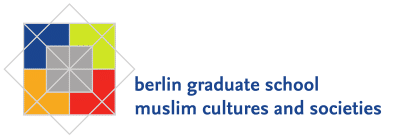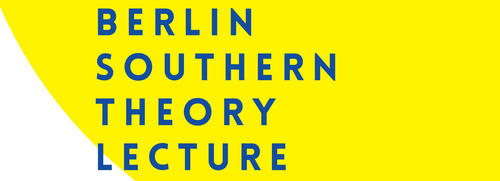Prof. Dr. Thomas Stodulka

Institut für Sozial- und Kulturanthropologie
Juniorprofessor für Sozial- und Kulturanthropologie, mit Schwerpunkt Psychologische Anthropologie
Sprechstunde
im Büro Landoltweg 9-11, Raum 107
Sprechzeiten per Telefon oder Webex n.V. per E-Mail
Eingeworbene Drittmittel, Fellowships und Stipendien
Aside from my ongoing research on permaculture, learning and shaping futures in southeast Asia, I currently work on the following projects:
- Isaac Manasseh Meyer Visiting Fellowship, Faculty of Arts and Social Sciences, National University Singapore, collaboration with Kelvin Low, Noorman Abdullah and Vineeta Sinha in the project "Shaping Futures at the Margins: Learning from Decolonial Scholarship and Activism"
- Humboldt Research Award, successful nomination with Prof. Dr. Brady Wagoner, Aalborg University; Alexander-von-Humboldt Foundation
- “Afflicted Minds–‘Madness’, Morality and Emotions in rural Bali”; German Research foundation (DFG)
- “Orders of Feeling and Economies of Solidarity: Understanding the relationship between work, health systems, and well-being in five European countries during Covid-19 (OFES-19)”; una-europa, Seed Funding for Developing Future Transnational Teaching Modules, EU Commission
- Working Group “Children and Nature”; Leipzig Lab, Universität Leipzig
- “Learning for Democracy from Interfaith Initiatives: Civic Education, Democracy, and Religion” (Berlin University Alliance Global Engagement Grant)
- “Shaping Asia” network consisting of partner organizations in Asia and Germany (convenor working group “Knowledge Production and Circulation”; DFG Network)
I have previously collaborated on these projects:
- International Networking Support: FU Berlin, National University Singapore; Center for International Cooperation FUB
- “Encounter”: media workshops, collaboration with the public library Tempelhof-Schöneberg and the Mauerpark Institut e.V. (Kulturstiftung des Bundes)
- Marie-Skłodowska-Curie-Fellowship, EURIAS Junior Research Fellow; Netherlands Institute of Advanced Studies, NIAS, Amsterdam
- “Knowledge Complexity”-Project (K-PLEX; work package leader, EU Horizon2020)
- “The Researchers’ Affects”; VolkswagenStiftung
- “Transforming emotion cultures – Transdisciplinary perspectives on immigration and conflict” (Center for International Cooperation FUB; Tel Aviv University)
- “Are Germans really green-eyed monsters? – Envy in transcultural perspectives: Japan, Indonesia, Germany” (PI; Cluster of Excellence Languages of Emotion, DFG)
- “Big Boys Don’t Cry–Shame, Fear and Youth in Indonesia”; fieldwork grant, German Academic Exchange service (DAAD)
- Center for Interdisciplinary Research (ZiF), Universität Bielefeld, Research Group: Emotions as bio-cultural processes
Herausgeberschaften
I co-edit the following journals and book series:
- 2019–2023 Ethos–Journal of the Society for Psychological Anthropology (American Anthropological Association), Associate Editor (extendable)
- 2019–2023 Social Sciences in Asia (Brill Book Series Editor, with Kelvin Low and Sidhartan Maunaguru, NUS Singapore (extendable)
I enjoy co-editing the following public anthropology blogs:
- 2020 Fieldwork meets Crisis, boasblog: https://boasblogs.org/fieldworkmeetscrisis/
- since 2019 [anthro]metronom–witnessing psy-realms, graduate student blog for psychological anthropologists, initiator and editorial advisor; https://www.anthrometronom.com
- 2017 – 2021 Encounter, collaborative multilingual media project in Arabic, English, Farsi and German, (co-initiator and editorial advisor); https://www.encounter-blog.com
I am part of the editorial board in the following journals:
- since 2018 Kulturwissenschaftliche Zeitschrift, advisory board; https://content.sciendo.com/view/journals/kwg/kwg-overview.xml
- since 2020 cultura & psyché–Zeitschrift für Kulturpsychologie und Psychologische Anthro-pologie, Editor for Psychological Anthropology https://www.springer.com/journal/43638
Organisierte Workshops and Konferenzen (Auswahl)
- 2023 Decentralizing knowledge: Alternative practices and cultures of (un-)learning and schooling in Asia; DFG-network Shaping Asia, Berlin, July
- 2023 Exploring Sensory Methods in Urban Spaces; DFG-network Shaping Asia, Singapore, June
- 2022 Remote Ethnography and Translocal Collaboration: Emotions and Affects;part of the Annual Winter School rotation on ‘Culture, Psychology, and Qualitative Research’, in collaboration with Aalborg University, Sigmund Freud University Berlin and Sigmund Freud University Vienna, October
- 2022 Orders of Feeling and Economies of Solidarity: Understanding the relationship between work, health systems, and well-being in five European countries during Covid-19 (OFES-19), second workshop of una-europa network: University of Edinburgh, University of Helsinki, Jagellonian University Cracow, Universidad Complutense de Madrid, at University of Marburg, March
- 2021 Orders of Feeling and Economies of Solidarity: Understanding the relationship between work, health systems, and well-being in five European countries during Covid-19 (OFES-19), first workshop of una-europa network: University of Edinburgh, University of Helsinki, Jagellonian University Cracow, Universidad Complutense de Madrid, at FU Berlin
- 2021 Bearing witness to Slow Violence’s Inner Atmospheres; GAA (DGSKA) Conference, Worlds. Zones. Atmospheres. Seismographies of the Anthropocene, September, Bremen
- 2021 EMERGE! Countering Pandemic Somnambulism through Connectivities, Comparisons, and Collaborations; with Éva R. Hölzle & Joanna Pfaff-Czarnecka; Shaping Asia Network (DFG)
- 2021 Mind Embedded and Embodied–Futures of Psychological Anthropology; with Anni Kajanus, 1st Biennial Conference of the European Network for Psychological Anthropology (ENPA), Helsinki
- 2021–2028 Culture, Psychology, and Qualitative Research; Annual Winter School, in collaboration with Aalborg University, Sigmund Freud University Berlin and Sigmund Freud University Vienna, rotating organizers
- 2020 Divergent Temporalities; panel at the Biannual Conference of the European Association for Social Anthropology, Lisbon; with Lauren Cubellis
- 2019 Envisioning Anthropological Futures; plenary session at the Biannual Conference of the German Anthropological Association, Konstanz
- 2019 ENPA Dialogues #1–Theory, Method, Experiment; with Jarrett Zigon and Greg Downey; Annual Discussion at the ENPA
- 2019 Towards Global Psychological Anthropology; with Edward Lowe, Society for Psychological Anthropology Biannual Conference (AAA), Santa Ana, New Mexico, US
- 2019 Hope, Disquiet, Loss. Affective Encounters in More-than-Human-Worlds. Lecture Series at the Institute of Social and Cultural Anthropology, FU Berlin; with Sandra Calkins
- 2019 How to Disrupt Yourself: Life in the Entrepreneurial Home; Panel discussion; transmediale 2019, Haus der Kulturen der Welt. https://2019.transmediale.de/content/how-to-disrupt-yourself-life-in-the-entrepreneurial-home
- 2018 Living a ‘good life’–Perspectives from Anthropology, Filmmaking and Entrepreneurship; preparatory workshop for anthropological art dialogues during transmediale Berlin festival 2019, 29-30th November, 2018, Institute of Social and Cultural Anthropology, FU Berlin
- 2018 Symposium: Psychological Anthropology, FU Berlin, Deutsche Gesellschaft für Sozial- und Kulturanthropologie, with Anita von Poser
- 2018 Roundtable: Moving Psychological Anthropologies, Inauguration of The European Network for Psychological Anthropology –EASA biannual conference Stockholm University, Sweden; convenor
- 2017Affective Practices, Belonging, and the Politics of Care, FU Berlin, GAA Biannual Conference, with Anita von Poser
- 2017 Killing the Concept of Culture … only to redefine it in new ways! – Occasional Seminar, trialogue from anthropology, sociology, and psychology
Positionen in Forschungsverbünden and -gesellschaften
- since 01/2018 European Network for Psychological Anthropology (ENPA); European Association for Social Anthropology (EASA); co-founder and convenor
- 2019–2023 “Shaping Asias” DFG-network consisting of partner organizations in Asia and Germany (convenor working group “Knowledge Production and Circulation”)
- since 2019 Academics in Solidarity (AiS); voluntary mentor for displaced early career-researchers
- since 08/2019 CRC (SFB) 1171 Affective Societies, FU Berlin; Theory and Methods Roundtable, co-convenor
- 10/2015–09/2019 AG Psychologische Anthropologie (GAA-DGSKA); co-founder and co-convenor
Mitgliedschaften
- American Anthropological Association (AAA)
- European Association of Social Anthropologists (EASA)
- European Network for Psychological Anthropology (ENPA), PSychAnth convenor
- European Association for South East Asian Studies (EuroSEAS)
- Deutsche Gesellschaft für Sozial- und Kulturanthropologie (DGSKA), Vorstand
- AG Psychologische Anthropologie (DGSKA), PSychAnth convenor
- Engaged Anthropology Working Group, Institut für Sozial- und Kulturanthropologie, FU Berlin
- Mauerpark Institute Berlin e.V.
- Childhood Publics, ERC Connectors Study
- Center for Democratic and People’s Studies (PUSDEMA)
- Collaborative Research Center, FU Berlin
- Sanata Dharma University, Yogyakarta, Indonesia
- Shaping Asia Transnational Research Network (DFG)
- SFB 1171 Affective Societies (DFG)
- Society for Psychological Anthropology (SPA)
- AG Public Anthropology (DGSKA)
Initiativen
-
2005-2011Co-founder and program co-manager of Indonesia’s first independent cinema café KINOKI –bukan bioskop bukan coffeeshop (KINOKI – not a cinema, not a coffeeshop) in Yogyakarta, Indonesia
-
2006 – 2013 Co-founder and manager of the Rumah Sehat Lestari (RSL), Shelter for chronically ill persons, Yogyakarta, Indonesia
Pädagogischer Ansatz
I use group walking sessions to learn more about student’s theoretical interest and scholarly motivation at the beginning of a semester. The 90-120 minutes walking sessions help in learning about students’ concerns at the onset of a semester, or when discussing public or political issues related to the course work in resonating public spaces. They also create a mobile format of bringing students into peer dialogue and conversation.
Regular writing assignments include short response papers to texts, ad hoc essays on exploratory focused observation (e.g. in the U-Bahn: on embodiment and mobile technology practices; or positioned family ‘genealogies’: to illustrate the challenges and shortcomings of quantitative methods) or full essays that summarize main arguments of core readings, contextualize them historically, politically, and in a reflexive manner. The essays written in the seminars on suffering and well-being, and critical perspectives on mental health and illness have, for example, resulted in the publication of a blog titled ‘anthro-metronom’ that MA-students initiated and which I supervise on a voluntary basis.
‘World café’ sessions divide large groups into smaller sections to discuss central arguments of core texts or critical statements of politicians, journalists, activists etc. as they were published in blogs and newspapers. Volunteering ‘table hosts’ then summarize the main results and present them to the whole group. In the MA level, I use this method to help students design research proposals at the end of the teaching term.
I adopt flash presentations of 7 minutes (sharp!) on topics that students choose themselves to ‘pitch’ ideas to an audience and get their attention for further discussion. This exercise is important for students to focus on main arguments based on previous readings and self-organized literature research, and win over the audience’s attention through engaging in mixed media presentations. I convey my feedback to them based on the criteria of eloquence, clarity of argument, creativity of argument and presentation, and subsequent moderation/Q&A of the discussion during weekly open door office hours.
I hold regular supervision colloquiums for doctorate and MA students as well as hosted postdoc fellows in an ‘Ethnography Workroom’. Here, didactics are not oriented towards issues of performativity. As the title suggests, this process encourages early-career scholars to share their challenges, dead-ends, and also potential research-related frustration with myself and the group.
My approach draws on the principles of intersectional teaching, which emphasizes inclusive and culture fair teaching practices. This awareness relates to the establishment of rather simple conventions of addressing each other in non-heteronormative ways or paying attention to language deficiencies in the course language, to more complex political and personal issues of racism, sexism, and bullying. I bring this awareness to my research, teaching, and service. Attending to students’ positionalities and biographies is important, because it promotes a diversification of voices in classrooms and at departments. I support applications of doctorate students from different backgrounds and I strive for a diversified cohort of doctorate students.
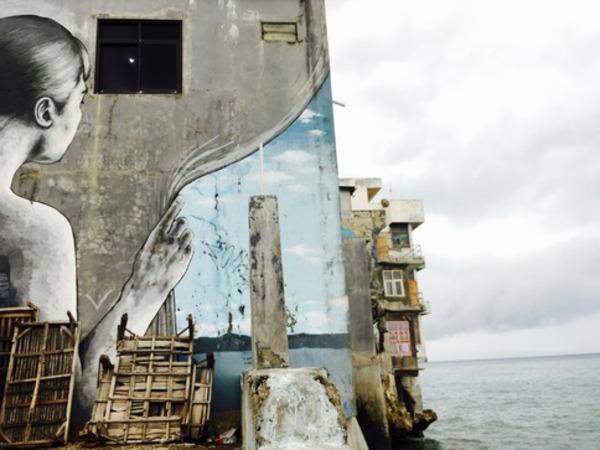
Mural in Kupang, Timor, Indonesia, ©Thomas Stodulka
Forschungsinteressen
- Affect and Emotion
- Alternative Education, Economy, and Environment
- Childhood and Youth
- Ethnographic Methods
- Marginalization, Stigmatization and Mental Health
- Psychological Anthropology
- Social Inequalities and Mobilities
- Travelling Concepts and Translocal Connectivities
- Regional focus: Southeast Asia, Europe
Feldforschung
Indonesia (46 months): Yogyakarta, Java: 2001 (6 months), 2005-2008 (24 months), 2009 (3 months), 2010 (2 months), 2012 (2 months), 2014-2015 (11 months); and Kupang, Timor: 2019 (2 months), 2020 (1 month)
Timor-Leste: 2015, 2019, 2020 (altogether 3 months)
Germany (since 2015): Berlin
Sprachen
German (native), English (fluent), Czech (fluent), Indonesian (fluent), French (conversational), Javanese (good), Spanish (good), Tetum (basic)
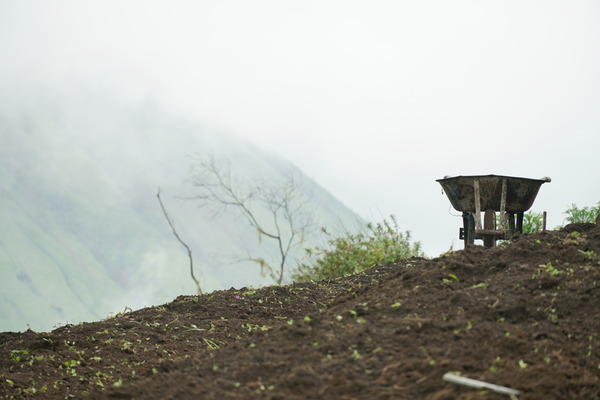
Gardens at Bajawa, Flores, Indonesia, ©Thomas Stodulka
My first research project was based on long-term ethnographic fieldwork with marginalized communities in Indonesia between 2001 and 2015. In an applied anthropological manner, this study collaborated with street-related youth, local and expatriate NGO-networks, doctors, nurses, and artists. The ethnographic study elucidated practices of coping with stigmatization by following the lives and trajectories of street-related persons and communities. It examined practices of care and the expanding social, economic, and spatial mobilities at the margins. The study contributed to the formulation of anthropological theory on attention and avoidance, emotion and economy in marginalized environments.
My second longer-term anthropology project that followed was titled “The Researcher’s Affects” and was funded by the VolkswagenStiftung from 2013 to 2018. The project focused on the role of affect, embodiment, and emotions in ethnographic research and contributed to multimodal research methods in social and cultural anthropology, literature, and primatology. It has manifested in a series of books, peer reviewed articles, art installations, a documentary, and it has developed a kaleidoscope of ethnographic and text analysis methods. The scholarly works have emplaced these methods in internationally renowned handbooks and encyclopedias. Three other projects that I have co-directed in larger interdisciplinary consortiums promoted anthropology among more hegemonic disciplines, such as data science, health economics, neuroscience, and psychology. The collaborative projects focused on transcultural dimensions of envy and social inequality, big data research, ethics and archiving, and publicly engaged anthropology in the context of migration, im/mobility, and refugees.
My commitment to research collaboration is further substantiated through my role as editor of internationally leading journals, blogs and book series, and as the co-founder and initiator of international research networks. I enjoy expanding existing networks with scholars working at universities, organizations, and civil society movements based in Asia and beyond. I am currently holding a research fellowship at the Leipzig Lab’s (Universität Leipzig, Germany) working group on “Children and Nature”, where I collaborate with a group of scholars from comparative cultural psychology, philosophy, and pedagogy on the value of school gardens and global knowledge circulation in the context of education and imagining futures. The fellowship is used to prepare new research that connects and compares the policies and utopias of permaculture and school gardening as pedagogy and practice across Asian and European contexts. This is planned as my third long-term study focus, which circles back to one of the facets of my first research where I followed marginalized communities that were particularly successful in advancing organic gardening in Indonesia together with translocal actors from Europe, Australia and America. The project expands on existing organic gardening and permaculture networks and translates them into a study on how institutionalized school garden curricula can shape futures, livelihoods, personhoods and economies in Southeast Asia.

Fishermen at Pantai Kelapa Lima, Timor, Indonesia, ©Thomas Stodulka
I supervise the following Phd projects (first supervision only):
- Edge of Tolerance: Politics of Emotion of Muslim Queer in Indonesia (completed) Ferdiansyah Thajib
- Between Stigma and Disease Comfort – Illness Concepts and their Implications for Psychiatry Experienced Persons (completed) Svenja Thornau
- Perception and representation of outer space in Thailand: An anthropological inquiry into how sensation and imagination shape our understanding of other worlds and beings Lauren Reid
- Methods of Child-Centered Research Annett Hofmann
- Learning and becoming a person: A collaborative ethnography of emotions among young girls in Bali Irina Savu-Cristea
- Home Making and Belonging in Return Migration: Korean Chinese as International Laborers Jingyi Li
- Navigating academic culture: ethnographers’ emotion work in greedy institutions Julia Baumann
- Images of a Contested Space: The Case of the 2009 L’Aquila Earthquake and its Aftermath Raffaele Gallo
- Women’s Organizations’ Navigating Role in Java, Indonesia: An Investigation into Emotional Labour and Gender-based Violence Mona Behnke
- Affective Minds: Understanding Emotional Dimensions of Schizophrenia in Indonesia Florin Cristea
- What do migrant divorcees in Germany cry about when they experience their divorce? A sensitive look at post-divorce loss(es) and disenfranchised grief Sara El-Dayekh
Bevorstehende Publikationen
Sonderausgaben von Zeitschriften
2023. Prospects: Futures of Psychological Anthropology; guest editor with Anni Kajanus and Suzana Jovicic; Ethos – Journal of the Society for Psychological Anthropology (in preparation).
2023. Caring through Ecology, Religion and Kinship, Special Section, guest editor with Leberecht Funk; cultura & psyché–Zeitschrift für Kulturpsychologie und Psychologische Anthropologie (in press).
Buchkapitel
2023. Why does it Stick? Affective Scholarship in Pandemic Times, in: Daniel White, Andrea De Antoni & Emma Cook (eds.). Affect as Cultural Critique. (accepted).
2023. Temporality, Experience, and Agency in Politically Marginalized Contexts, in: Edward Lowe (ed.), The Cambridge Handbook of Psychological Anthropology. Cambridge University Press (accepted).
2023. Reflexivity, Engagement, Decoloniality – Shifting Emergences of Ethnography and Collaboration, in: Anne Meiser, Ingo & Mirjam Lücking (ed.), Im Tandem – Wege zu einer postkolonialen Ethnologie. Wiesbaden: Springer (in print).
2022. Die Ökonomie des Humorvollen, in: Michaela Haug & Rosalie Stolz (eds.). Ethnographic Encounters. Köln: Rüdiger Köppe Verlag (in print)
2022. Ethnographie und Feldforschung in Bewegten Welten, in: Uwe Wolfradt, Lars Allolio-Näcke & Peter S. Ruppel (eds.), Kulturpsychologie – Eine Einführung. Wiesbaden: Springer (in print).
Zeitschriftenartikel
2023. Mapping A Field: Anthropologies and Psychologies of Studying Children-Animal Relationships, with Katja Liebal, Culture & Psychology (accepted).
Bücher
2023. Emotions beyond Fieldwork–Methods (co-written with Oliver Lubrich). New Departures in Anthropology, Cambridge University Press (in preparation).
Bücher und Herausgeberschaften
2019. Affective Dimensions of Fieldwork and Ethnography (ed. with Ferdiansyah Thajib & Samia Dinkelaker). New York: Springer.
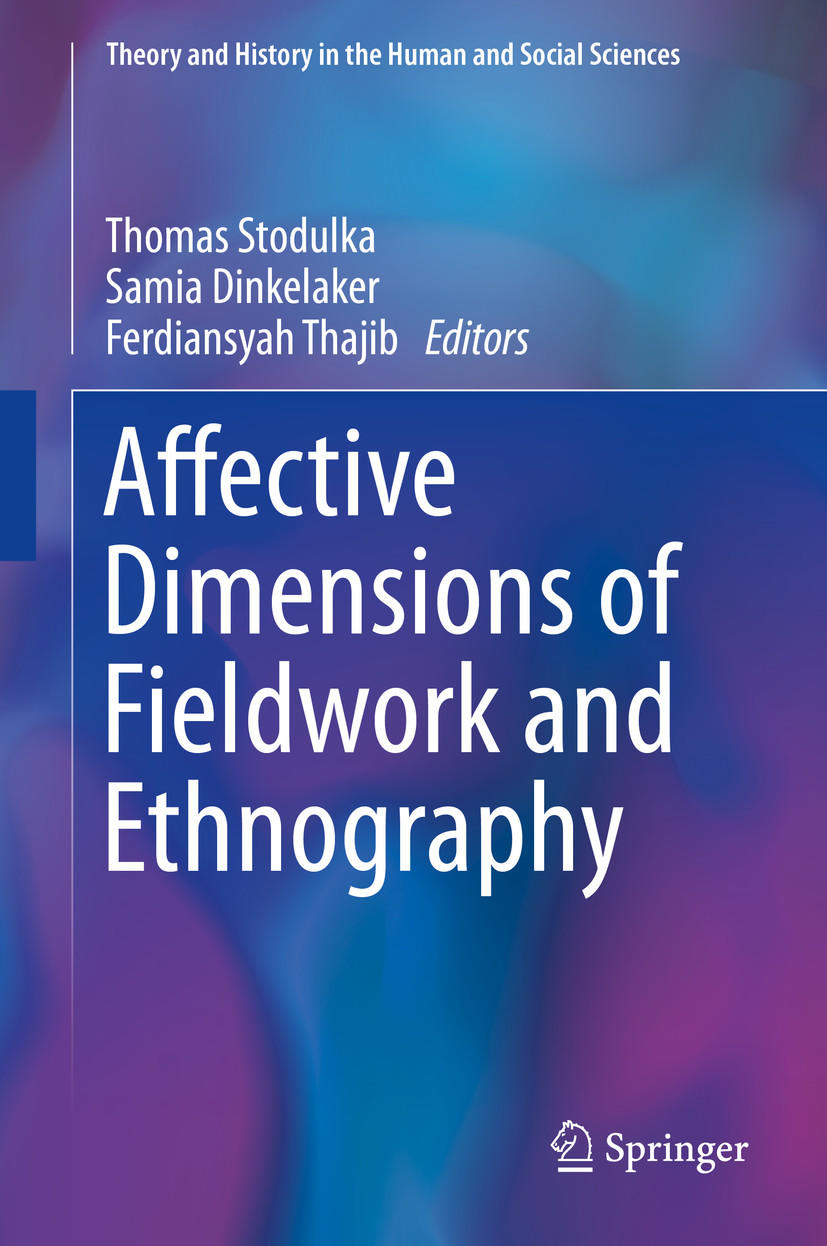
2019. Emotionen im Feld: Gespräche zur Ethnographie, Primatographie, und Reiseliteratur (co-written with Katja Liebal & Oliver Lubrich) [Emotions in the Field: Conversations on Ethnography, Primatography, and Travel Writing] Bielefeld: transcript.
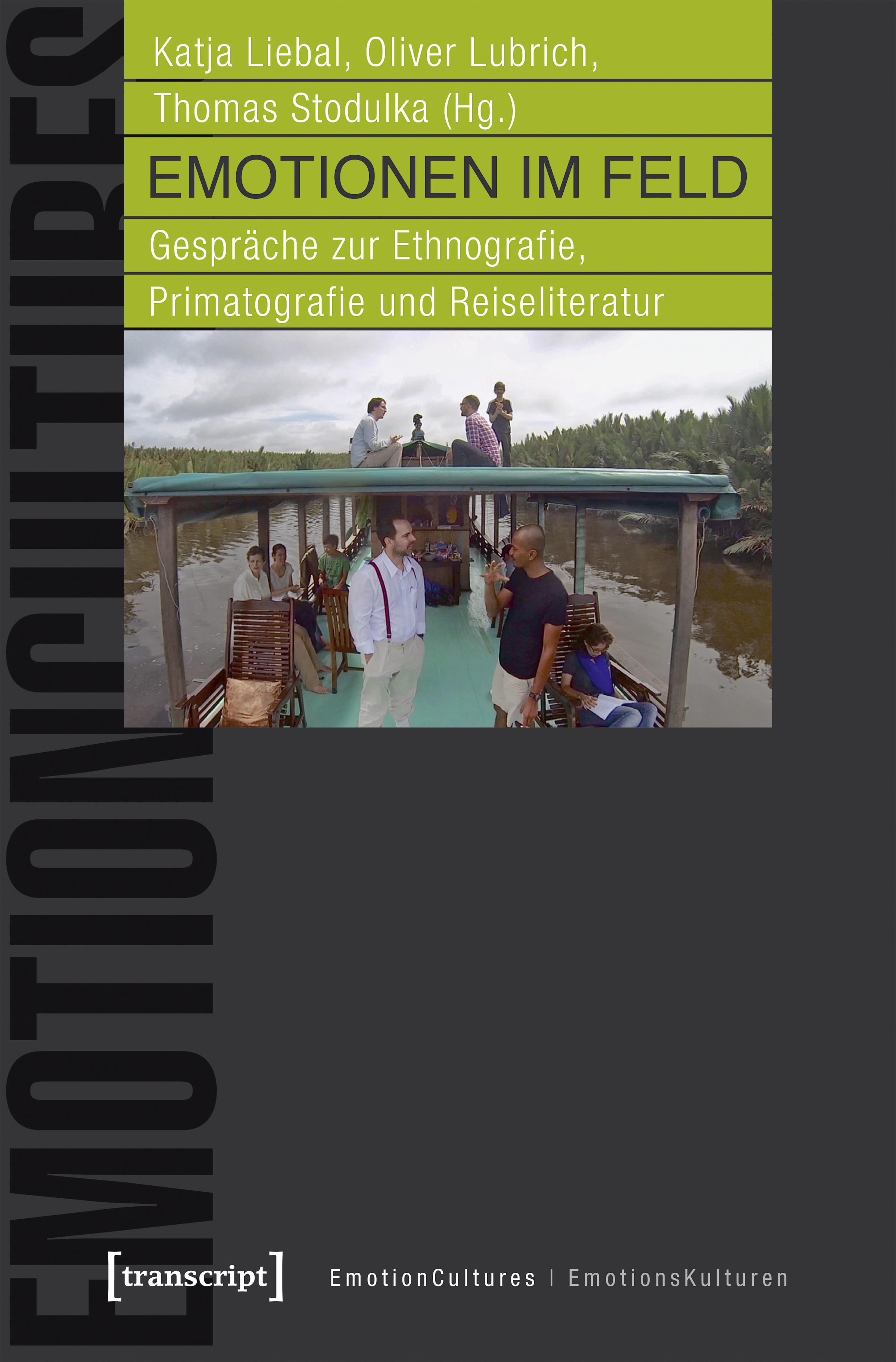
2019. Emotionen auf Expeditionen - Ein Taschenhandbuch für die ethnographische Praxis (co-written with Oliver Lubrich). Bielefeld: transcript.
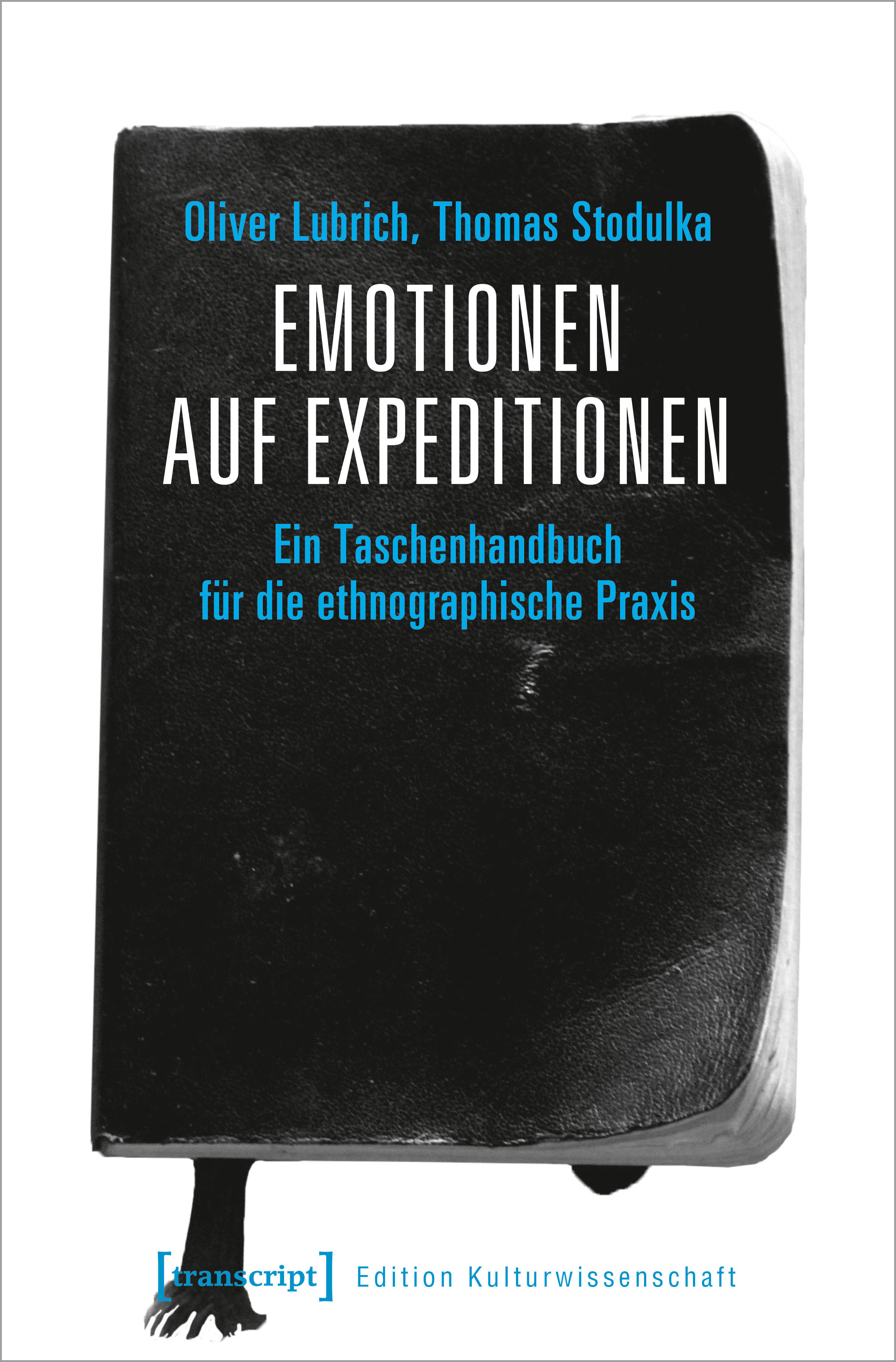
2017. Coming of Age on the Streets of Java – Coping with Marginality, Stigma and Illness. Bielefeld: transcript. (multiply reviewed; see book review example in: Current Anthropology 59(3): 351-352)
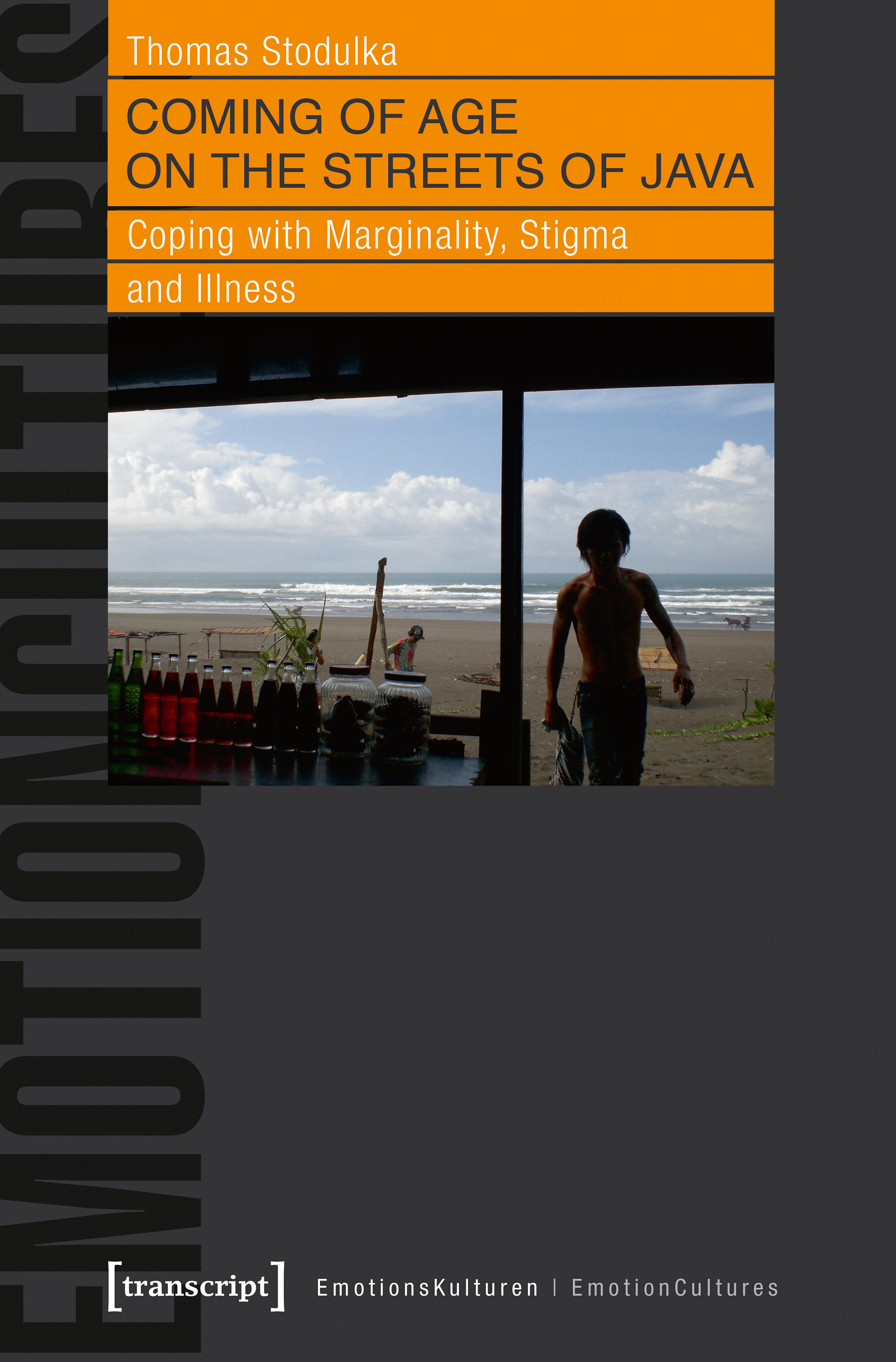
2014. Feelings at the Margins: Dealing with Violence, Stigma and Isolation in Indonesia (ed. with Birgitt Röttger-Rössler). Frankfurt/New York: Campus.
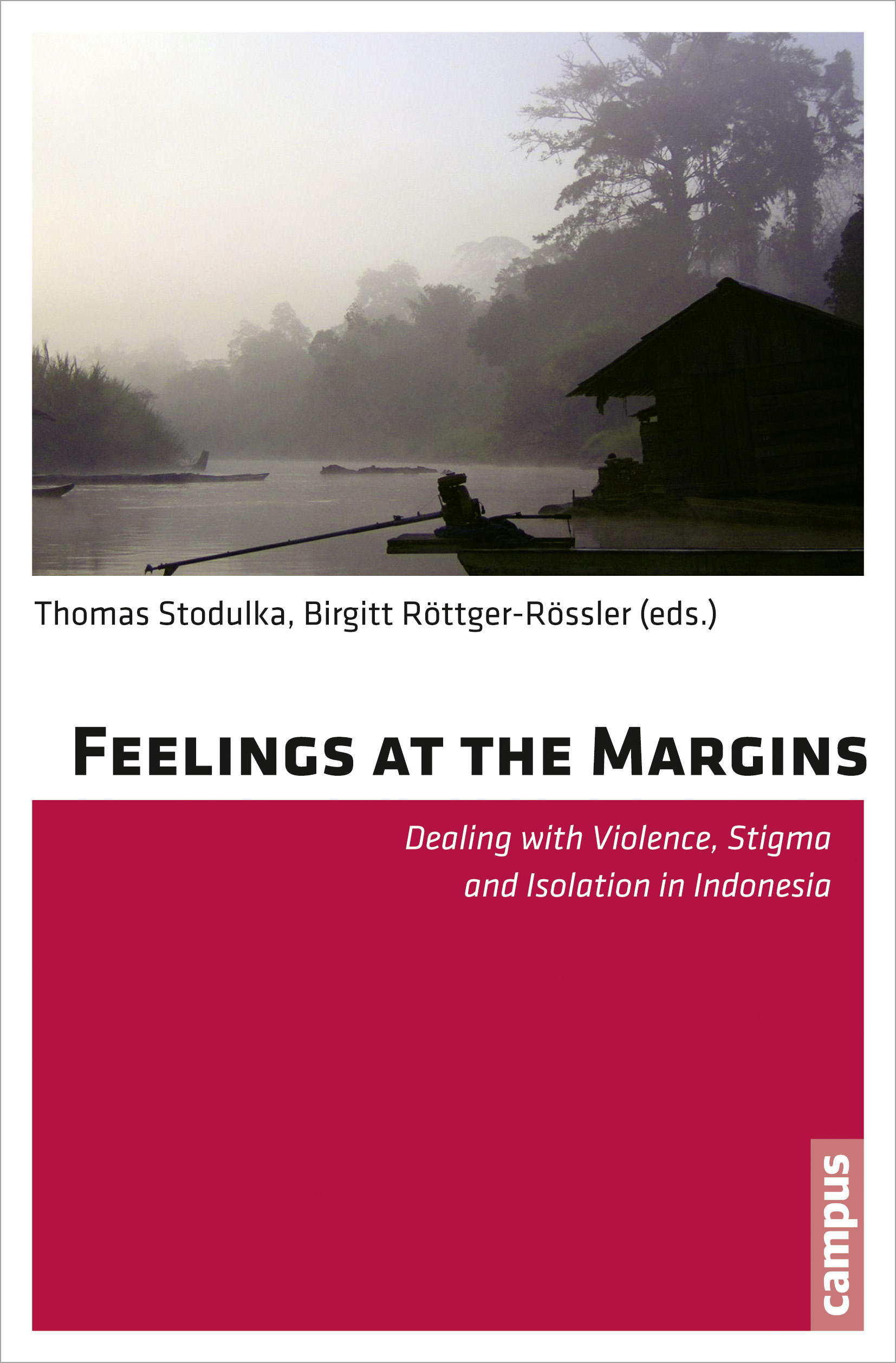
Herausgeberschaften – Zeitschriften und Blogs
Ethos – Journal of the Society for Psychological Anthropology (AAA), associate editor
Social Sciences in Asia (Brill Book Series Co-editor, with Kelvin Low and Sidhartan Maunaguru, NUS Singapore)
Fieldwork meets Crisis. Boasblog
cultura & psyché, editorial board
European Network for Psychological Anthropology Blog and Website, co-editor (with Keir Martin, Oslo University; Florin Cristea, FU, University of Roehampton, UK)
[anthro]metronom–witnessing psy-realms (graduate student blog on psychological anthropologies; initiator and editorial advisor)
Kulturwissenschaftliche Zeitschrift (advisory board)
Encounter, collaborative multilingual media project in Arabic, English, Farsi and German (co-initiator and editorial advisor)
Herausgeberschaften – Sonderausgaben von Zeitschriften
2022. Fieldwork meets Crisis; guest editor with Andrea Behrends, Mirco Göpfert, Minh Nguyen, Thomas G. Kirsch, Anna Lisa Ramella, Magnus Treiber, Asta Vonderau; Zeitschrift für Ethnologie, 147.
2022. Divergent Temporal Horizons, with Lauren Cubellis, Special Section: Ethos.
2021. Envisioning Anthropological Futures; with Kristina Mashimi, Hansjörg Dilger, Anita von Poser, Birgitt Röttger-Rössler, Dominik Mattes; Zeitschrift für Ethnologie, 145.
Zeitschriftenartikel
2023. Cultural Diversity!? A Roundtable; with Birgitt Röttger-Rössler, Boris Nieswand, Monique Scheer, Kulturwissenschaftliche Zeitschrift, 7-21.
2022. Introduction; with Mirco Göpfert, Andrea Behrends, Minh Nguyen, Thomas G. Kirsch, Anna Lisa Ramella, Magnus Treiber, Asta Vonderau. Special Issue: Fieldwork meets Crisis; Zeitschrift für Ethnologie, 147: 1-11.
2022. Envy and Culture: An Interdisciplinary Perspective (with Annemarie Bierstedt), Emotions: History, Society, Culture 6.
2022. Emotive Banners and Billboards – Worlding Covid-19 and Orders of Feeling in Kupang, Indonesia. Special Issue, ‘“Worlding Sites”: Globalized Visions and Material Constructions of Future Southeast Asia, guest editors: Vignato, S. & Arnez, M., European Journal of East Asian Studies 21(1).
2022. Orders of Feeling and Worlding Covid-19 Infrastructures in Kupang, Indonesia. Special Issue, ‘“Worlding Sites”: Globalized Visions and Material Constructions of Future Southeast Asia, guest editors: Vignato, Silvia & Arnez, Monika, European Journal of East Asian Studies.
2021. Selbstreflexion im Dialog: Zwischen Mode und Methode (with Katharina Fischer). cultura & psyché.
2021. Introduction: Envisioning Anthropological Futures (and Provincializing Their Origins); with Kristina Mashimi, Hansjörg Dilger, Anita von Poser. Special Issue: Envisioning Anthropological Futures, Zeitschrift für Ethnologie, 145: 3-26.
2020. Worlding Permaculture School Gardens: Translocal Connectivities and Minor Utopias in Timor Leste. Special Issue, ‘Shaping Mobile Worlds in Asia: Human and Non-Human Socialities’, guest editors: Low, K.E.Y., Abdullah, N. & Ho, E.L.E., American Behavioral Scientist, 64(10): 1512–1525.
2018. A “steady eye” in “a moving world”: Comparative perspectives on travel writing and narrative ethnography (with Jörg Lehmann, comparative literature). Journeys - The International Journal of Travel and Travel Writing, 19(2): 23-43.
2018. Affective Scholarship: Doing Anthropology with epistemic affects (with Nasima Selim and Dominik Mattes). Ethos 46(4): 519-536.
2017. Yogyakarta Street Careers –Feelings of Belonging and Dealing with Sticky Stigma. Antropologia 4(2): 145-163.
2017. Affekte im Feld – Ein blinder Fleck der Forschung? (with Oliver Lubrich & Katja Liebal) [Affects in the Field: A blind spot in research?] Interdisziplinäre Anthropologie, 5: 179-197. (no peer review)
2015. Emotion work, Ethnography and Survival Strategies on the Streets of Yogyakarta. Medical Anthropology 34(1): 84-97.
2015. Spheres of Passion: fieldwork, ethnography and the researcher’s emotions. Curare - Journal for Medical Anthropology 38(1+2): 103-116.
2014. Feldforschung als Begegnung: Zur pragmatischen Dimension ethnographischer Daten [Fieldwork as Encounter: The pragmatic dimension of ethnographic data]. Sociologus 64(2): 179-206.
2013. Guter Neid, schlechter Neid? Von der “Neidkultur” zu Kulturen des Neides [Good envy, bad envy? From „envy culture“ to cultures of envy] (with Christian von Scheve and Julia Schmidt). Aus Politik und Zeitgeschichte (APuZ), 32-33, Emotionen und Politik. Bundeszentrale für Politische Bildung. (no peer review)
Beiträge in Handbüchern und Enzyklopädien
2021. Methods and the Construction of Knowledge: Fieldwork and Ethnography, in: Pedersen, L. & Cligett, L. (eds.), The SAGE Handbook for Cultural Anthropology, pp. 85 – 194. Thousand Oaks: Sage.
2019. Emotions in Fieldwork (with James Davies), in: P. Atkinson, S. Delamont, A. Cernat, J.W. Sakshaug, & R.A. Williams (eds.), SAGE Research Methods Foundations.
2016. Coming of Age on the Streets, in: L. Manderson, A. Hardon and E. Cartwright (eds.), The Routledge Handbook of Medical Anthropology in the 21st Century, pp. 85-88. Routledge: London.
Beiträge in Sammelbänden
2023. Ethnographie und Feldforschung in Bewegten Welten, in: Uwe Wolfradt, Lars Allolio-Näcke & Peter S. Ruppel (eds.), Kulturpsychologie: Eine Einführung, pp. 213–220. Springer.
2022. Reflexivity, Engagement, Decoloniality – Shifting Emergences of Ethnography and Collaboration, in: Anna Meiser, Ingo Rohrer & Mirjam Lücking (eds.), Im Tandem: Wege zu einer postkolonialen Ethnologie, pp. 156–173. Wiesbaden: Springer.
2022. Die Ökonomie des Humorvollen, in: Michaela Haug & Rosalie Stolz (eds.). Ethnographic Encounters, pp. 211–229. Köln: Rüdiger Köppe Verlag.
2020. Zauberformel, Scharlatanerie, Projektion? Empathie als Methode und Emotion als Erkenntnis ethnographischer Forschung [Magic, witching, projection? Empathy as Method and Emotion as Epistemics of Ethnographic Research], in: J. Jacobs, M. Liebelt & K. Konerding (eds.), Empathie und Sprache, pp. 64-82. Berlin: deGruyter.
2020. Foreword: Of fat white buffalos, dirty dogs, and sleazy machos – A tender hoo-ha on swearing, mocking and belonging, in: Nassenstein, N. & Storch, A. (eds.), Swearing and Cursing: Contexts and Practices in a Critical Linguistic Perspective, Volume 22 of Language and Social Life pp. VII – IX. Berlin: de Gruyter.
2019. Pathways of Affective Scholarship (with James Davies), in: Stodulka, T., Thajib, F. & Dinkelaker, S. (eds.), Affective Dimensions of Fieldwork and Ethnography, pp. 1-7. New York: Springer.
2019. Introduction: Advancing Affective Scholarship (with Ferdi Thajib & Samia Dinkelaker), in: Stodulka, T., Thajib, F. & Dinkelaker, S. (eds.), Affective Dimensions of Fieldwork and Ethnography, pp. 8-23. New York: Springer.
2019. Orders of Feeling, in: C. von Scheve & J. Slaby (eds.), Affective Societies: Key Concepts, pp. 310-318. London: Routledge.
2019. Fieldwork, Ethnography, and the Empirical Affect Montage. (with Ferdi Thajib & Samia Dinkelaker), in: A. Kahl (ed.), Analyzing Affective Societies: Methods and Methodologies, pp. 279-295. London: Routledge.
2017. Towards an integrative anthropology of emotion – a case study from Yogyakarta, in: Storch, A. (ed.), Consensus and Dissent: Negotiating emotion in the public space. pp. 9-34. Amsterdam: John Benjamins.
2017. Storms of slander – Relational dimensions of envy in Java, Indonesia, in: R. Smith, M. Duffy and U. Merlone (eds.), Envy at Work and in Organizations, pp. 297-320. Oxford: Oxford University Press. DOI:10.1093/acprof:oso/9780190228057.003.0013
2014. The Emotional Make-up of Marginality and Stigma (with Birgitt Röttger-Rössler), in: T. Stodulka & B. Röttger-Rössler (eds.), Feelings at the Margins – Dealing with Violence, Stigma and Isolation in Indonesia, pp. 11-29. Frankfurt/New York: Campus.
2014. ‘Playing it Right’ – Empathy and Emotional Economies on the Streets of Java, in: T. Stodulka & B. Röttger-Rössler (eds.), Feelings at the Margins – Dealing with Violence, Stigma and Isolation in Indonesia, pp. 103-127. Frankfurt/New York: Campus.
2009. “Beggars” and “Kings”: Emotional Regulation of Shame Among Street Youths in a Javanese City in Indonesia, in: B. Röttger-Rössler & H.J. Markowitsch (eds.), Emotions as Bio-cultural Processes, pp. 329-349. New York: Springer. DOI 10.1007/978-0-387-09546-2_15
Buchrezensionen
2022. Belittled Citizens: The Cultural Politics of Childhood on Bangkok’s Margins, by Giuseppe Bolotta. NIAS Monograph series, no. 154. Copenhagen, NIAS Press, 2021, ix + 250 pp., references, glossary, index, colour images, [paperback]. ISBN: 978-87-7694-301-1. IRINA SAVU CRISTEA and THOMAS STODULKA
2022. Jenkins, Janis H., and Thomas J. Csordas. 2020. Troubled in the Land of Enchantment. Adolescent Experience of Psychiatric Treatment. Oakland, CA: University of California Press. 281 pp. FLORIN CRISTEA and THOMAS STODULKA
2021. Beatty, Andrew. Emotional worlds: beyond an anthropology of emotion. Cambridge University Press. Journal of the Royal Anthropological Institute (JRAI), 27(2).
2020. Smith‐Hefner, Nancy. 2019. Islamizing intimacies. Youth, sexuality, and gender in contemporary Indonesia. Honolulu: Hawai’i University Press, with Anna-Maria Walter. Social Anthropology 28(1), 205-207.
Weitere Online-Publikationen und Forschungsberichte (ohne Peer Review)
2022. Zur Teilbarkeit ethnographischer Forschungsdaten. Oder: Wie viel Privatheit braucht ethnographische Forschung? Ein Gedankenaustausch, with Andrea Behrend, Michi Knecht, Claudia Liebelt, Julia Pauli, Ursula Rao, Michaela Rizzolli, Birgitt Röttger-Rössler, Olaf Zenker. Working Paper SFB 1171 Affective Societies 01/22.
2022. Emotion und Wissenschaft, with Oliver Lubrich; Forschung und Lehre 05/22.
2021. Feldforschen lernen in Zeiten der Pandemie, with Cordula Weißköppel; Mitteilungen der Deutschen Gesellschaft für Sozial- und Kulturanthropologie, 54: 22-28.
2021. Exceptional Uncertainty: Early-Career Anthropologists in the Corona Pandemic, with Minh Nguyen, National Center of Competence in Research – The Migration-Mobility Nexus, blog; https://nccr-onthemove.ch/blog/exceptional-uncertainty-early-career-anthropologists-in-the-corona-pandemic/?lang=de
2021. Democracy and interfaith initiatives – blog on Religion, Democracy, and Education in Indonesia and Germany, with Saskia Schäfer, public appearance starting March 2021. http://democracyandreligion.com/de/uber/en/
2020. Field of Exceptional Uncertainty. The Challenges of Early-Career Anthropologists in the Wake of the Corona Pandemic (with Minh Nguyen), Blog: Fieldwork meets Crisis. (policy paper)
2019. A Proposition: Affective Dimensions of Fieldwork and the Empirical Affect Montage, e-symposium, International Sociological Association, https://esymposium.isaportal.org/resources/resource/a-proposition/
2018. Jennifer Edmond, Nicola Horsley, Elisabeth Huber, Rihards Kalnins, Jörg Lehmann, Mike Priddy, Thomas Stodulka. 2018. Big Data and Complex Knowledge - Observations and Recommendations for Research from the Knowledge Complexity Project. Trinity College Dublin. (white paper; recommendations for the European Commission on Big Data Research)
2018. Jörg Lehmann, Thomas Stodulka, Elisabeth Huber. H2020 Project K-PLEX: WP4 Report on Data, Knowledge Organisation and Epistemics. [Research Report] Freie Universtät Berlin.
2017/18. Editorial ‘Encounter’ – Engaged Anthropology Blog and Magazine.
2016 About Ethnolab, with Thajib, Ferdiansyah and Dinkelaker, Samia.
2016 Editorial. Ethnolab, with Thajib, Ferdiansyah and Dinkelaker, Samia.
2016 Behind the Scenes: Reflective Accounts on Ethnolab, with Thajib, Ferdiansyah and Dinkelaker, Samia.
Dokumentarfilme und Multimedia
2022. Democracy and Interfaith Initiatives (with Saskia Schäfer, Mohammad Gharaibeh & Sabine Achour). http://democracyandreligion.com
2021-2022. Bearing Witness to Slow Violence (with Ferdiansyah Thajib et al.). Multimedia project hosted at the https://www.anthrometronom.com
2017. Decision for a reasonable distance (with Emanuel Mathias and Franz von Bodelschwingh): visual art installation and documentary on fieldwork in ethnography and primatography (exhibited at different museums and galleries around Europe)
2003. Augenblicke [Moments], with Sebastian Baller. Mini-DV. Colour. 43 Minutes. Oral histories of three anarchists from three different generations.
2002. Mimpi manis, Paris! [Sweet Dreams Paris!], with Janna Bégué. Hi8. Colour. 43 Minutes. Life on the Streets of Yogyakarta, Indonesia. Nominated for Student Award at the Göttingen International Film Festival (GIEFF).
2001. Tonspuren [Sound-tracks], with Nils Meyer-Abich and Sven Ismer. Hi8. Colour. 44 Minutes. Music, Migration and Belonging. Thesis Film of Visual Anthropology, Georg-August-Universität Göttingen, Advisor: Dr. Beate Engelbrecht. Audience Award at Göttingen Short Film Festival, Kino Lumière Göttingen, 2002.

